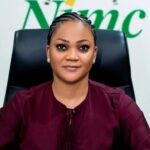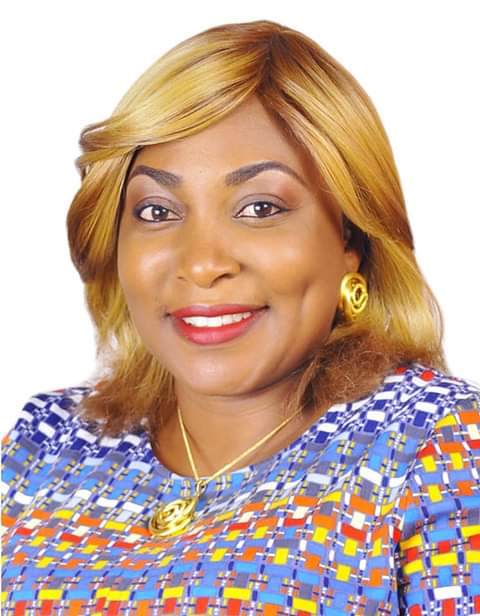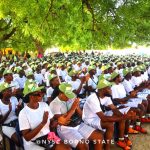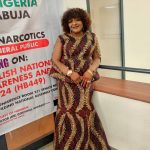By Funmilayo Adeyemi
Dr Vivienne Rwang, a lecturer at the University of Southampton, UK, has called for an establishing structures to monitor and ensure the Universal Basic Education (UBE) policy implementation for displaced populations.
Rwang was speaking during a virtual seminar on Tuesday, with the theme: Improving Educational Access and Quality for Displaced and Marginalised Learners in Nigeria:A Policy and Practice Approach”.
It was hosted by the Southampton Education School, University of Southampton UK.
She said findings from her academic study revealed the severe challenges faced by internally displaced children in accessing quality basic education in camps across North Central and North East Nigeria.
“Education is more than a right, it is a tool for stability, healing, and hope. We owe these children that much,” Rwang stated.
Citing global statistics, she noted that Sub-Saharan Africa accounts for 46 per cent of conflict-induced displacement worldwide, with Nigeria representing a significant portion due to prolonged insurgency and communal violence.
Rwang called for urgent reforms to Nigeria’s UBE framework, including the formal recognition of IDP camps by federal and state governments, dedicated education budgets for displaced children, and curriculum reforms in teacher training to integrate emergency education.
She further advocated for free education for IDP children, including the waiving of Parent-Teacher Association (PTA) fees, and the provision of uniforms and learning materials.
“In spite of Nigeria’s UBE policy mandating free and compulsory basic education, many IDP children remain excluded,” she said.
According to her, many IDP camps lack functional schools, while displaced children who attempt to enrol in neighbouring schools often face rejection, high fees, or non-absorption due to overcrowding or lack of documentation.
She also highlighted the shortage of trained teachers capable of addressing the psychosocial and educational needs of traumatised children, noting that most IDP schools operate without special budgetary allocations.
“Teachers working in and around camps often lack the training, motivation, and resources to meet the needs of displaced learners.
“Without education in emergencies training, we risk losing an entire generation, ”Rwang added.
In her keynote address, Prof. Nana Tanko, Co-founder of the African Policy Research Institute, called for urgent action to support the education of children in conflict-affected states.
She stressed that collective efforts are needed to lift them out of their current circumstances.
Prof. Rahila Gowon, Deputy Vice Chancellor, University of Jos, alongside other academics from the institution, also emphasised the need for a complete overhaul of Nigeria’s education system to better accommodate marginalised learners.
Also speaking, Mr Simon Katu, Assistant Director of Disaster Risk Reduction at the National Emergency Management Agency (NEMA), advocated for the integration of education in emergencies into national and state disaster management frameworks.
He said this would help institutionalise the Safe School Initiative and ensure more consistent interventions.
Meanwhile, Dr Tae-Hee Choi gave a brief presentation on partnerships and collaborations, which was one of the key aims of the seminar.
NAN reports that Rwang’s research is titled “Quality Basic Education and Provision for Internally Displaced Children in Internally Displaced Persons Camps: A Case Study of IDP Camps in North Central and Northeast Nigeria”.
It was motivated by her volunteer work in IDP camps and findings from her master’s dissertation on public primary education in the Federal Capital Territory (FCT).
Representatives from the Universal Basic Education Commission (UBEC), International Organisation for Migration (IOM), Hope for All Foundation, Lovatt Foundation, and various school administrators also participated in the seminar. (NAN)












